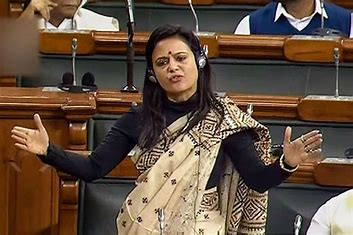The recent development of Delhi Police filing an FIR against TMC MP Mahua Moitra in 2024 has sparked widespread interest and debate across political circles and public discourse. This blog provides a comprehensive analysis of the incident, examining the legal implications, political ramifications, and public reactions surrounding the controversy. Whether you're following current affairs closely or seeking insights into the intersection of law and politics, this detailed exploration aims to shed light on the complexities and significance of Delhi Police's action against Mahua Moitra.
Legal Basis and Allegations
Delhi Police's decision to file an FIR against TMC MP Mahua Moitra stems from allegations related to purported violations of legal statutes or complaints lodged against her. The FIR, which serves as an initial step in criminal proceedings, indicates official recognition of complaints or evidence suggesting potential legal infractions. Such actions require adherence to due process and legal scrutiny, ensuring fair investigation and procedural justice in accordance with India's legal framework. The specifics of the allegations and legal provisions invoked will determine the course of subsequent legal proceedings and the impact on Mahua Moitra's political standing.
Political Context and Party Responses
The filing of an FIR against Mahua Moitra holds significant political implications, reflecting broader partisan tensions and electoral strategies within India's political landscape. As a prominent member of the Trinamool Congress (TMC), Mahua Moitra's legal challenges may influence party dynamics, alliances, and electoral strategies leading up to upcoming elections. Political reactions to the FIR vary, with rival parties potentially leveraging the controversy to discredit opponents or galvanize support among voter constituencies. The response from TMC leadership and supporters will shape public perception and media narratives surrounding the incident, highlighting the intersection of law enforcement actions and political discourse.
Public Perception and Media Coverage
The public reaction to Delhi Police's FIR against Mahua Moitra underscores divergent viewpoints and public sentiments regarding accountability, transparency, and political ethics. Social media platforms, news outlets, and opinion columns play a crucial role in shaping public opinion and disseminating information about the controversy. Public discourse may focus on issues of judicial independence, freedom of expression, and the ethical conduct of elected officials, prompting discussions on governance standards and electoral accountability in democratic societies. The media's role in framing narratives and disseminating factual information will influence public perception and discourse surrounding the FIR against Mahua Moitra.
Legal Defence and Due Process
Mahua Moitra's legal defence in response to the FIR will hinge on procedural fairness, evidence-based arguments, and adherence to constitutional protections safeguarding individual rights. Legal experts, advocacy groups, and civil society organizations may scrutinize the case for due process violations, procedural irregularities, or political motivations influencing law enforcement actions. The right to legal representation, presumption of innocence, and fair trial standards are essential considerations in safeguarding judicial integrity and upholding constitutional rights amidst high-profile legal controversies. Mahua Moitra's legal strategy and responses will shape legal precedents and public perceptions of justice and accountability in India's democratic framework.
Implications for Parliamentary Conduct and Ethics
The FIR against Mahua Moitra raises broader questions about parliamentary conduct, ethical responsibilities, and public trust in elected representatives. Parliamentary norms, ethical codes of conduct, and accountability mechanisms play a pivotal role in maintaining legislative integrity and public confidence in democratic institutions. The incident may prompt debates on ethical standards for elected officials, transparency in political engagements, and the role of law enforcement agencies in upholding accountability within political spheres. Addressing systemic challenges and reinforcing governance standards is crucial for restoring public trust and enhancing democratic governance in India's evolving political landscape.
Impact on Political Discourse and Electoral Dynamics
Delhi Police's FIR against Mahua Moitra is likely to influence political discourse and electoral dynamics leading up to future elections in India. The controversy may resonate with voter constituencies, shaping electoral preferences, coalition formations, and public opinion towards political parties and candidates. Campaign strategies, voter outreach initiatives, and media narratives will pivot around issues of governance integrity, ethical leadership, and institutional reforms in response to legal controversies involving elected officials. The outcome of legal proceedings and public reactions will determine the lasting impact on electoral outcomes and governance priorities in India's democratic governance.
Conclusion
In conclusion, Delhi Police's decision to file an FIR against TMC MP Mahua Moitra in 2024 underscores the intersection of law, politics, and public accountability in India's democratic framework. By examining legal bases, political responses, public perceptions, and implications for parliamentary ethics, this blog has provided a comprehensive analysis of the controversy's significance and broader implications. As stakeholders navigate legal proceedings and electoral dynamics, the FIR against Mahua Moitra serves as a catalyst for debates on governance standards, electoral ethics, and institutional reforms in India's evolving political landscape.
This blog has explored the multifaceted dimensions of Delhi Police's FIR against Mahua Moitra, highlighting its impact on legal precedents, political narratives, and public discourse surrounding governance and accountability. Whether scrutinizing legislative conduct, defending constitutional rights, or evaluating electoral consequences, the controversy underscores the complexities of balancing judicial independence with political accountability in democratic societies.

No comments:
Post a Comment
Thank you for reading my blog